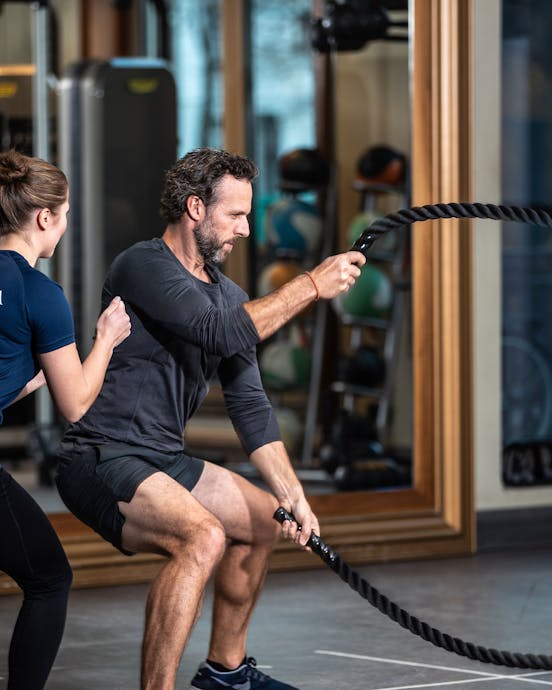Author: Ayo Williams, PT & Fat Loss Specialist
How does ANYTHING improve? Through practice, challenge, adaptation and the willingness to learn and ‘do better next time’. The human body is no different. In order to get stronger, we need to push it out of its comfort zone. We challenge the body, and it, over a period of time, responds to prepare itself to cope with this ‘new normal’ in terms of output, performance or even range of motion. How does it do this?
In simple terms, the body’s cells are constantly regenerating. The rate of this is fastest in childhood and adolescence, and it of course slows down dramatically in our later years. It, however, never stops, and this is one of the reasons why you can always experience positive gains in many aspects of your physicality, at any age. All of the body’s tissues respond to stress by challenge, and then regeneration in preparation to cope better with any subsequent future similar stress.
The most obvious example of this is muscle growth for someone who is getting stronger, but it is also true for bone. Weight training and load-bearing exercise has been shown through numerous studies to play a role in slowing age-related bone loss; several of them showing that it can actually build bone density. Whilst with muscle it is microscopic tears which heal back stronger to create changes, it is the load-bearing force through our bones which encourages the internal supporting matrix within the bone to become more dense. This slow breakdown–regeneration cycle is why consistency over a period of time is the most important factor in eliciting change from your exercise programme!
So why then is rest so important for success? The reason is this – you get stronger during the regeneration part of the cycle! Yes, that’s right! You don’t actually get stronger during the activity, you are merely providing a signal to your body… creating the best impetus for it to heal back stronger, effectively. Done correctly (adequate stimulus followed by appropriate recovery time) the body will gradually adapt to match demand. There are two common scenarios where this goes horribly wrong.
1 Training too hard
Harder is NOT always better! This is a common misconception. A good rule of thumb is that a workout is too hard if it leaves you so sore that you’re unable to train effectively in 48 hours. A little DOMS (delayed onset muscle soreness) is expected and desirable (see above) but too much simply means the damage created is not conducive to positive benefits in any of the tissues.
2 Training too often
This is the scenario I had in mind when I was thinking of the title for this article, as it is the more common of the two – runners with a race-date in mind, beginner- to intermediate-level folks in the gym who are starting to see good results, people who are training through multiple different mediums throughout the week, but are using the same muscle groups… all of the above are susceptible to doing too much.
So what are the signs that your rest is not as good as it could be?
• Continual pain and/or soreness
• General fatigue
• A decline in performance (where you would expect an improvement)
• Reduced appetite
• ‘Overuse’ injuries (like shin-splints)
• Feeling irritable and restless
• Increased bouts of illness
• Waning motivation / not looking forward to your training like you once did
As an experienced trainer, it’s particularly maddening for me to see or hear of people going through this, as all it often needs is a conversation and a properly planned schedule to alleviate all of the above. I feel that in a way it’s unfair that someone who is THAT motivated doesn’t get the results they deserve, or worse, moves away from their goals through injury or illness.
Simple steps you can take to ensure that rest is adequate:
• Lose the all-or-nothing mentality… more is not always better!
• Remember that the body cannot differentiate between different types of stress. If you are already sleep-deprived, super-stressed from your day, or crazy-sore from your last workout, adjust your session accordingly.
• Whilst doing split-routines or different types of training throughout the week can certainly help recovery, there needs to be at least one day – a full day – with a significantly reduced load, e.g. gentle walking/mobilising, at most. That’s a full day, and that includes two sleeps.
• Make sure that you are eating a diet which is leaning towards fewer processed foods, high in protein with plenty of vegetables and appropriate carbohydrates. Staying hydrated is vital too.
• Remember the mantra ‘the rest is as important as the training’.
You deserve great results for your efforts! Take it easy one or two days per week, and watch how your results in every measurable parameter improve. Work hard… but rest harder.



